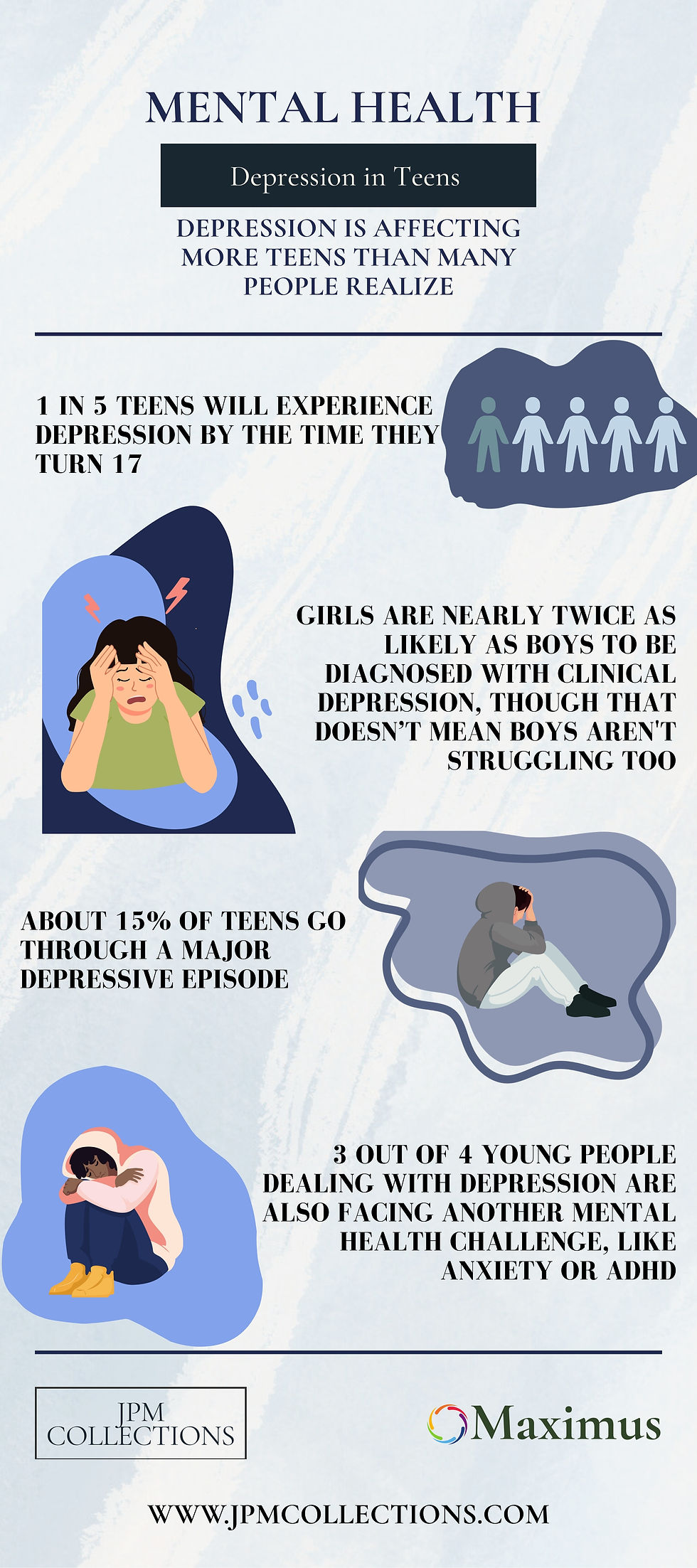Research Study for Depressed Teens – Earn Up to $484
- Jaime P. Morales

- May 9
- 4 min read
Updated: Sep 8
Insight: Are There Depression Research Studies for Teens and Kids?
A common question we’ve heard from parents, caregivers, and young people alike is: “Are there research studies specifically designed for teens or children?”
The answer is yes, absolutely. Depression research studies are thoughtfully designed for individuals of all ages, including children and adolescents. In fact, studies involving young people often include additional safeguards to ensure safety, ethical oversight, and clear communication. When teens participate in research, it not only supports scientific progress but also ensures their unique experiences are represented in findings that shape future care.
If you're new to the idea of research participation, a helpful resource is this overview: Exploring the Role of Marginalized Communities in Research, which outlines why diverse and inclusive participation, including youth voices, is so important.
A Current Opportunity: Non-Invasive Study on Teen Depression
We recently identified a study that may be particularly relevant for teens aged 13–18 who are currently experiencing depression. Importantly, this study:
Does not involve needles or blood draws
Is non-invasive and youth-friendly
May offer valuable insights into emotional wellness while contributing to broader research on teen mental health
If you know a depressed teen who fits this description, please consider sharing this opportunity with them or their caregiver. It may provide both support and a sense of purpose through participation.
Why It Matters: Teen Depression by the Numbers
According to new data from Compass Health Center:
Nearly 1 in 5 teens (20%) will experience depression by the age of 17
Girls are statistically more likely than boys to be diagnosed with depression, but this doesn’t always reflect the full picture, as boys may be under-diagnosed or present symptoms differently
This data highlights a critical need for awareness, access to resources, and inclusive research efforts that address the mental health needs of all adolescents.

In university, we learned that depression can present differently from person to person, and that boys and young men are often discouraged from expressing sadness or vulnerability. Social expectations like "boys should be strong" can lead many to suppress their emotions, which may cause depressive symptoms to go unnoticed or unspoken.
That’s why it’s especially important for boys to be included in studies like this—so we can better understand how depression affects them and ensure they receive the support they need.
Depression Stigma in Minority Communities
Growing up as a Latino in an immigrant household, I was taught that depression, anxiety, and other mental health disorders weren't real, that they didn’t exist.
It wasn’t until I worked in a Level One trauma center that I realized how wrong that belief was. The stigma around mental health in many communities, especially immigrant and minority households, is not only false but deeply harmful.
Depression is real. Anxiety is real. And ignoring or dismissing these struggles can have deadly consequences for teenagers.
The National Institutes of Health (NIH) supports this, noting that mental health stigma is often higher in minority groups, which can prevent people from seeking the help they need.
Currently Recruiting
Study Overview
Recruiting adolescents aged 13–18 years who are currently experiencing depression.
What Participation Involves
Remote interviews (via Zoom) about thoughts, feelings, and behaviors (past and present).
Mindfulness training for your child.
MRI scan (non-invasive) to measure brain activity while practicing mindfulness.
Conducted at the Zuckerman Mind Brain Behavior Institute, Columbia University.
Smartphone surveys sent via the MetricWire app.
Follow-up assessment (brief interviews) 1 month after the MRI scan.
Compensation
Participants can receive up to $484.
Eligibility:
Teen must be currently depressed.
Blog Disclaimer
This blog is an independent platform created to share publicly available information about ongoing research studies, primarily sourced from the official NIH (National Institutes of Health) website and other publicly accessible databases. Our goal is to hold space for individuals to explore research opportunities that may align with their interests or health profiles.
We do not work directly with the research teams or institutions conducting these studies, nor are we involved in participant selection, communication, or study oversight. All decisions regarding participation are determined solely by the research teams based on their specific study requirements and eligibility criteria.
We do not receive funding or compensation from research programs or from individuals who choose to participate. This platform is informational only and is not intended to replace professional medical advice or the official study pages.
If you choose to provide your email address, it will be used solely to share information about current or future research studies that may be of interest. Your email will never be sold, shared, or provided to research teams or third partieswithout your explicit permission.
For detailed information or to apply to a study, please contact the listed study coordinators directly through the links provided.



Comments